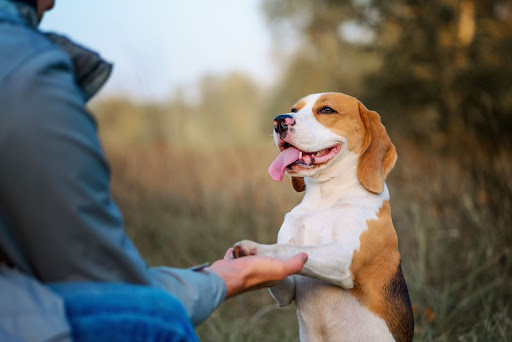Who gets the dog in a divorce?
Dogs are often viewed as family, and when it’s time to part ways, many spouses struggle with the possibility of having to give up the pet they both love.
If you’re getting divorced in Louisiana and are concerned about the future of your furry friend, you may find comfort in learning what the law has to say. Continue reading for more information, then contact The Johnson Firm to discuss your situation with an experienced divorce lawyer.

[ez-toc]
How the Louisiana family court system views pets
Under Louisiana law, pets are viewed as nothing more than personal property. Instead of deciding which spouse will get “custody” as it does with children, the court includes the pet with the rest of the property that it divides under Louisiana’s community property laws.
“Community property” is defined as any property acquired during the marriage — it doesn’t matter who paid for it or how it came into the marriage. Assets categorized as community property are divided equally between spouses when they divorce. Separate property, which includes anything acquired before the marriage, usually remains with the spouse who originally owned it.
When did the dog become a part of the family?
When determining who gets the dog in a divorce, the court will primarily consider whether the dog is community or separate property. To do so, the court will look at when it was brought into the parties’ lives.
During the marriage
If the parties acquired the dog after they got married, it will most likely be community property.
In this case, the court may either award the dog as joint property, where each spouse has the right to visit and spend time with the pet or as sole property, where one spouse will receive full ownership of the animal.
Before the marriage
If the dog was brought into the home before the marriage began, things get a little murkier. The
court may consider the dog separate property in this instance, but exceptions are sometimes possible.
For example, if the couple jointly acquired the dog while they were living together but not legally married, a principle called the “transmutation of property” may apply. If both parties were involved in the decision to acquire the dog along with its care and maintenance, even if only one party is listed on the dog’s paperwork, the dog may be automatically converted to community property.
This decision is entirely up to the court though, and it may instead decide to award the dog to the party who was named on the dog’s initial documents.
Negotiating a settlement agreement with the dog in mind
Allowing the court to decide who gets the dog in a divorce can be a gamble, and there are other options available. Couples may be able to negotiate an out-of-court settlement agreement that creates a more suitable solution for all parties — including the dog.
The greater flexibility offered by a settlement agreement allows the parties to factor in important elements such as:
- The dog’s bond with each spouse
- The dog’s daily care needs
- Each spouse’s work schedule
- The feelings of any children involved
- The distress and confusion the dog may experience from a new living arrangement
A settlement process would also allow parties to negotiate a joint pet agreement, which most family courts avoid because of the complexity of these arrangements. If this is something the parties desire, they should create a settlement agreement, as it gives them full control over decisions about the pet’s care. For example, the parties could agree to a rotating schedule for visitation or create stipulations for sharing the financial responsibility of the pet’s care.
Keep in mind that this option is only available when both parties are willing to communicate and negotiate in good faith. If the parties cannot reach a mutual agreement, they’ll likely have to rely on the court’s decision, which may result in a heartbreaking arrangement that neither of them is happy with.
Our attorneys can help you weigh the possibilities
Although the law says otherwise, dogs are not just property — they’re beloved family members who need to be taken into careful consideration during a divorce. If your divorce involves a dog, our divorce attorneys in Lake Charles can help you understand your legal rights and pursue a solution that works for everyone.
Contact our office today at (337) 433-1414 to schedule an appointment and get the help you need.
Let’s build your case
"*" indicates required fields





